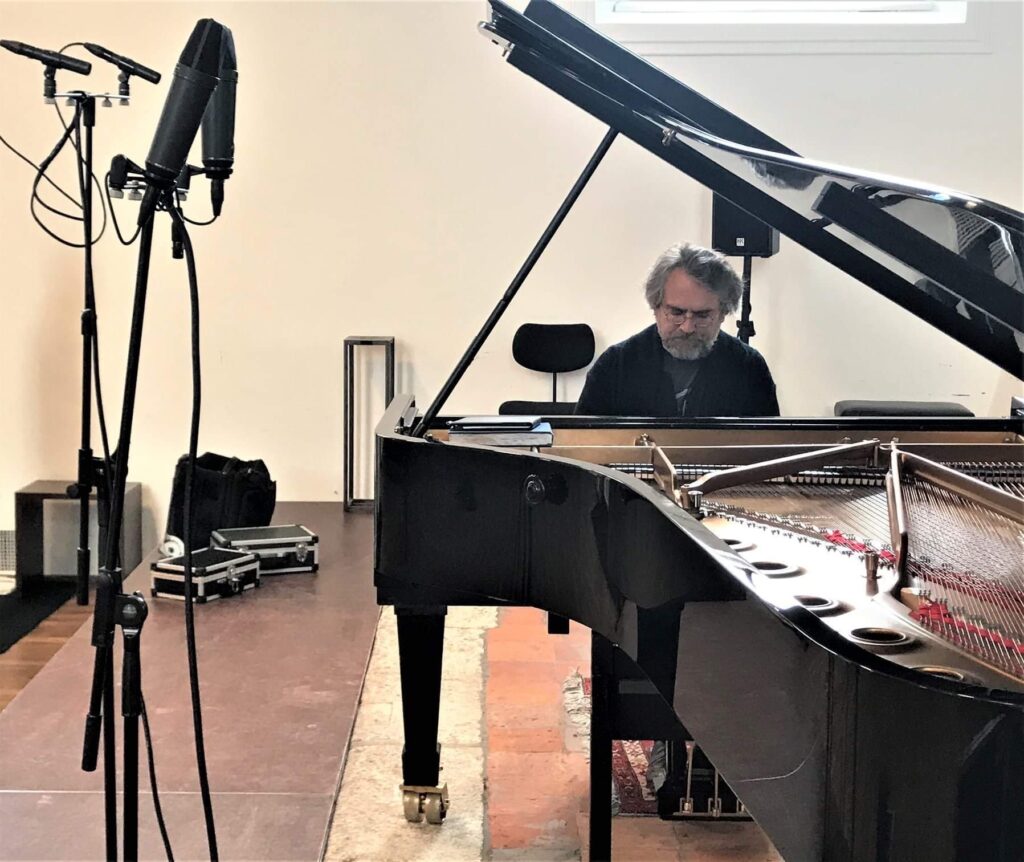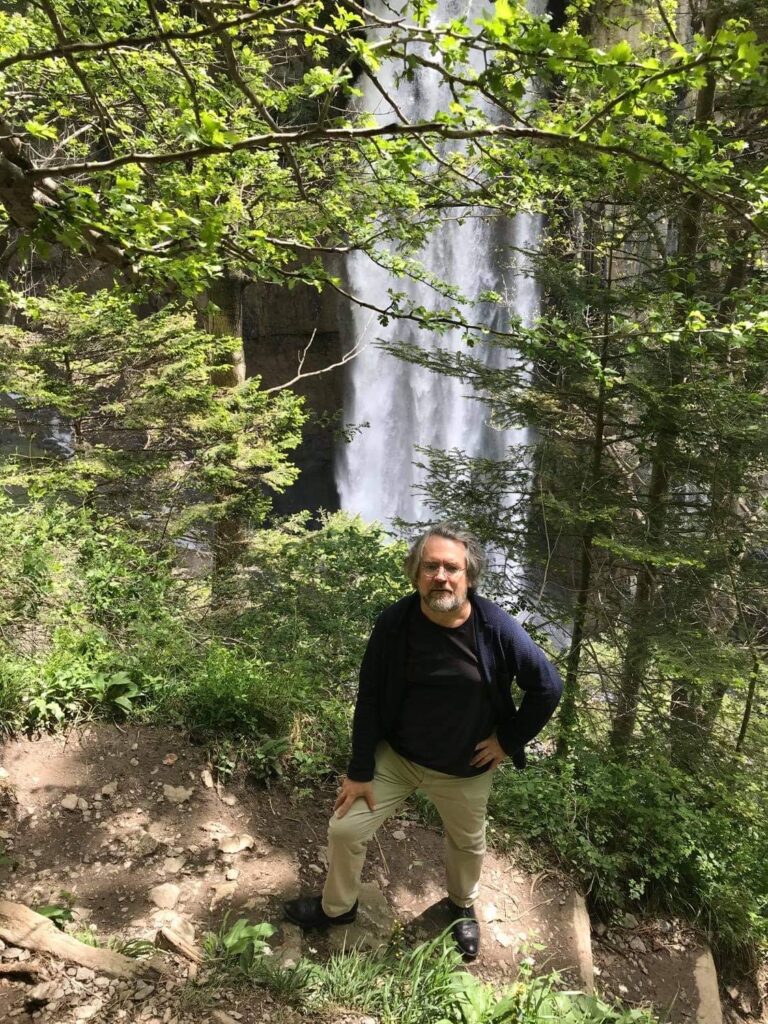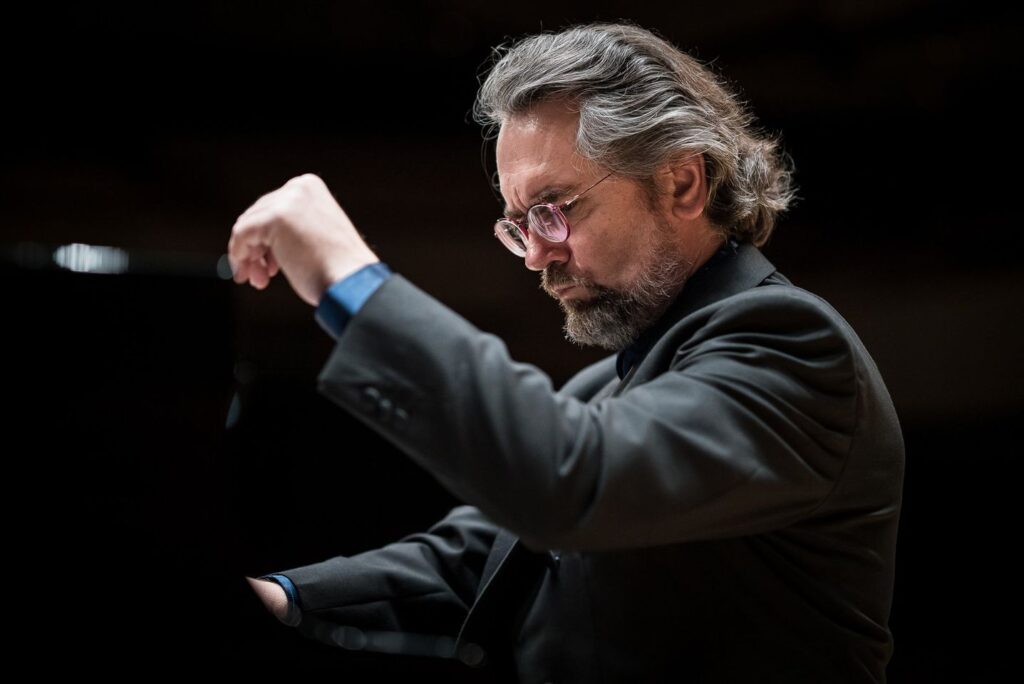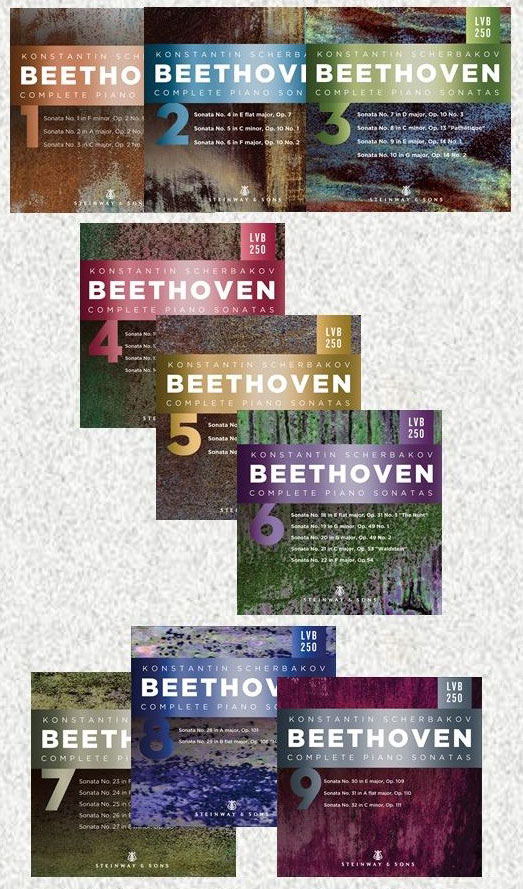An Uncancelled Beethoven Celebration – Interview with Konstantin Scherbakov, part 1
2020 is not only a fascinating year for the musical world and the worldwide celebrations of Ludwig van Beethoven, but also gives us a chance to get closer to noteworthy performers in order to share their ideas and experiences of the grand master of western classical music. In this interview with Konstantin Scherbakov, the phenomenal performer generously shares his experiences derived from a lifelong relationship with the composer, on stage, in the recording studio and as an influential tutor. In this first part of the interview we get to learn about Scherbakov’s year of celebration and complete sonatas recording project.

Patrick Jovell: Konstantin, we know you through your large discography and your broad interest in different kinds of repertoire but this interview will focus on your relation to Beethoven. How did it all start?
Konstantin Scherbakov: The Beethoven Year 2020 rounds up an important circle in my biography. It is not only Beethoven’s 250 Birthday. It also happens that I play piano since 50 years. And it is absolutely no coincidence that I celebrate this double anniversary by playing only Beethoven’s music: I associate my personal Beethoven story with my life in music in general. It began when I, six years old, played his “Marmotte”, and continued through the next fifty years when I played in concerts almost everything Beethoven has written for the piano, and beyond – his solo piano works, all the Concertos and all the Symphonies. I also recorded quite a bit of this – initially for the Soviet Radio, then for Naxos (Diabelli-Variations), Two Pianists label (Eroica-Variations, Sonatas), the largest and most significant project being to-date the Complete Symphonies in Liszt’s transcription. The 2019/20 concert season was exclusively dedicated to Beethoven: the Complete Sonatas and Symphonies cycles in various countries and at some important festivals, of which the most notable was, of course, the Beethovenfest in Bonn. Besides the solo repertoire, I was also to perform Beethoven’s concerti. Towards Beethoven’s supposed birthday at the end of 2020 the release of the Complete Sonatas CD-box (which I am currently recording and will continue recording during the next months for the Steinway label) is scheduled with the release of the set of nine CDs in October – November 2020.
PJ: How has Covid-19 affected your concert and recording schedule?
KS: Yes, it was an unexpected turn of events, (for everyone everywhere!) which cost me, as any other artist, lots of engagements, concerts and which ruined all plans. You realize this especially painfully when it’s a cycle of concerts which is spread through the whole season, when your work is precisely scheduled every month at different venues: these sonatas in January, this set in February etc. Indeed it is very misfortunate when you schedule your work years in advance and everything is lost at once. Except recordings, however: in spite of the Corona crisis, the Steinway label is working strictly in accordance with the schedule we made up one year ago. Every month there has been a release of yet another set of Sonatas.
Here the pandemic situation turns out to be a life elixir! When in the past thirty years did I have the time to enjoy working – in peace – on one program for one whole month? The experience which mixes playing late Beethoven’s music all day long, endless walks in various Swiss regions, and reading Proust, is nothing short of a revelation! In the absence of any disturbing factors like traveling, getting hurried or distracted by other things, you realize this is nothing but sensational, unheard of, and for that reason extremely precious and wonderful time. That is what I am through right at this moment. However dreadful the situation is for the world I am grateful for the opportunity to experience something I was never able to experience before. Many things in life will look different from now on…

PJ: It is said that Beethoven – after composing 15 sonatas – told his editor Breitkopf & Härtel that he was planning to compose sonatas in a totally new way. How do you as an interpreter and recording artist schedule your Beethoven recitals in terms of coupling sonatas? Is there a chronological factor working in this sense?
KS: Of course everyone planning to perform or record the complete Beethoven Sonatas inevitably thinks about how to program them in concert or on CD. So did I. I had done my homework but decided to research how others did theirs before me. I consulted recording catalogues and googled for concert cycles featuring Beethoven’s Sonatas. Strangely enough, I found more programs where the sonatas were distributed in some ways, different from a simple chronological order. Among them there would not be two similar programming ideas. And every idea seemed to me strange and suspicious, highly questionable and subjective. Why this or that choice of sonatas in one concert? What stands behind this particular combination? How would such a program sound in a concert? I did not have any answers as it all seemed too personal, too speculative and thus difficult to understand or agree. My research however proved to be very helpful. The conclusion to program my Beethoven Sonatas cycle in chronological order was reinforced and my opinion about such a decision strengthened. Indeed, what can bring a more satisfying experience than a journey with Beethoven through his life, every period of which left a significant trace in his piano sonatas, from beginning to the end? Moreover: from such a perspective, 32 sonatas appear much more as a cycle with its obvious concept and well structured content.
PJ: Brahms’ opening of his first Sonata – paraphrasing Beethoven’s ”Hammerklavier” – is such a striking example of the latter’s enormous impact as a role model for the sonata form, for composers and pianists to come. There are endless attempts to explain Beethoven’s Sonatas in form and psychological contents. Can you tell me why the 32 have become a bible among pianists?
KS: There are many reasons. To name them all one would need to write a book. I’ll just try to focus on the most obvious ones, from my perspective. One of them was the fact that Beethoven’s titanic and tragic figure was the icon that represented the spirit of the time. After all, the living legend Beethoven, was the most well-known personality of the time next only to Napoleon… It is no surprise therefore that Beethoven was regarded as a symbol of the epoch also by those who composed music. Of course Beethoven’s prodigious gifts were apparent anywhere, in all forms and genres. However, his genius needed the sonata form to develop and bring to realization the whole wealth of his abilities. It is primarily due to sonatas, quartets, and the symphonies that we know Beethoven. The historical development of the sonata form has reached its peak in Beethoven’s compositions. Deriving from examples of earlier sonata forms in the works of C. P. E. Bach, Haydn and Mozart, Beethoven brought the genre to totally new heights and established a new model which ought to serve as a pattern to follow and as a catalogue of rules, methods and ideas. It was the sonata form that explains the attracting power and strong influence of Beethoven.
PJ: Clearly Beethoven displays both willingness and boldness when it comes to experimenting with contents and its construction. Can you elaborate on that?
KS: Beethoven’s method of composition at first sight seems to be uncomplicated, straightforward, simple and easy: one takes a microscopically small musical pattern and grows huge constructions using its semantic potential. This universal method is indeed like in biological life where anything grows from a single cell. However, such a method requires a genius spirit, melodical gift, perfect sense for formal balance and logic, sophistication and precision of a mathematician’s thinking. Without any of these qualities any attempt to copy or even just follow the method would fail. Many composers didn’t escape the attraction of Beethoven’s method and tried it with various success: the names of Brahms, Bruckner, Schumann and Schubert spring to mind, Mahler would not be possible; many representatives of national schools couldn’t avoid the influence either, such as the Russian Tchaikovsky, Finnish Sibelius or Czech Dvorak. The perfect blend of counterpoint and melody, the use of plain harmony patterns, rhythmical urgency, logic in the development, an enormous scope of artistic ideas and subjects and the ability to say much using few words – that all made Beethoven’s scores an example to study, worship, marvel, and to follow.
PJ: Which values – or challenges for that sake – arise for you as pianist and interpreter while working with this incredibly rich material?
KS: Also from the pianist’s perspective there are a few reasons why Beethoven’s music is so attractive. The first indeed is the fact that this is undoubtedly the best music ever written. There are thirty-two wonderful piano pieces; each of them makes any concert program attractive for audiences. Due to their different musical nature, they can be integrated in any programming context. It also happened that Beethoven was the first composer to write music for the grandfather of the modern piano which we know and play today. Finally, it was in the sonata form where he not only formally completed the development of the genre but opened the new era of pianism with new rules, principles, new basics and unheard-of means. In order to serve the new music ideas which Beethoven introduced in yet another sonata, the piano technique had to be revolutionized; the modern understanding of articulation was introduced (Legato, before all), the use of dynamic range of ever changing and growing instrumental possibilities, the use of pedal(s) etc.
However, for a thinking, reflecting pianist, playing a Beethoven Sonata remains, above all, the challenge of highest artistic criteria; it is kind of a maturity test, because in a Beethoven’s Sonata one’s musicianship becomes apparent. Why so? The answer is in the nature of Beethoven’s language in general as the language of one of the greatest humanists in arts history. It looks to me the following way: in his music, Beethoven sums up the experience of the humanity, forms it in a particular musical idea, encrypts it in a pattern (motif, theme) consisting of a few notes and speaks by its means to humans, in his own name or in the name of God (“Seid umschlungen Millionen!”). His genius makes possible an easy and clear recognition of the meaning of such a motif by everyone. Its expressive power and obvious message is underlined by its shortness. The famous “Fate motif” from the 5th Symphony is a perfect illustration of this thesis. Thus, the task of a performer is to catch, identify, decode and bring the message over. Here the interpretation (pronunciation) has ideally to have the equal expressive power; any failure in properly formulating the idea would be recognized and cause dissatisfaction. In the ideal case, we get two kindred musical spirits acting in harmony – the composer’s and the performer’s. In the worst scenario, we simply experience the dutiful text reading. To illustrate these words I ask you to think about this: how many times were the expectations that always arise in anticipation of a concert featuring, say, the Sonata Op. 111, justified by the actual experience? That is what makes pianists attempt to climb those peaks of piano literature: on one side, the challenge which in case of success would be gratified by recognition, on the other – the urge to prove to oneself where one stands as of now. And above all – the ultimate beauty of the music which is matched only by its depth.

A worldwide performer, Scherbakov had a career that took him to play with 70 orchestras and to record some 40 albums, including the complete piano works by Shostakovich, Godowsky, and the nine symphonies by Beethoven in Liszt’s transcription. Over the course of his career, Scherbakov has performed all of Beethoven’s piano concertos around the globe and is perhaps the only pianist in the world that has an active repertoire featuring all of Beethoven’s piano sonatas, all piano concertos and the Liszt-Beethoven symphonic transcriptions (the latter on five discs 1998-2004, Naxos). The recordings were met with enthusiasm: “Scherbakov is in many ways the artist whom these works have been waiting for,” International Piano wrote. Stereoplay echoed: “This CD should be prescribed at least 50 conductors for educational purposes! Since 1998 Scherbakov functions as Professor at the Zürich University of Arts and many of his students received prizes at international piano competitions, most notably Yulianna Avdeeva; the winner of the 2010 Chopin Competition in Warsaw. Scherbakov has also been nominated by the International Classical Music Awards (ICMA) for his Liszt/Lyapunov Transcendental Studies CD (Steinway label, 2019).
Scherbakov Sonatas Project 2020

FREE SAMPLE: Beethoven Complete Sonatas Vol. 6 (Steinway and Sons label)
Comments
Why haven’t I heard of this pianist before. I looked him up on YouTube after reading this interview, and he is AMAZING. I have of course heard of and listened to Yulianna Avdeeva, and she is a solid pianist to say the least, so of course she would have a good teacher. I just did not realize it was a great artist such as Scherbakov.
Thank you for posting so many interviews with pianists on this blog!! I learn so much from getting a look inside the minds of these artists!